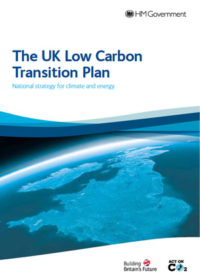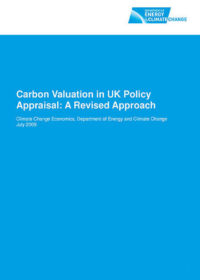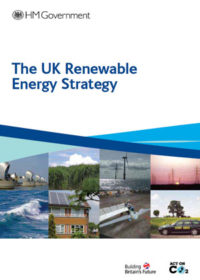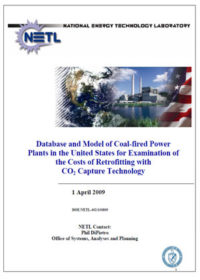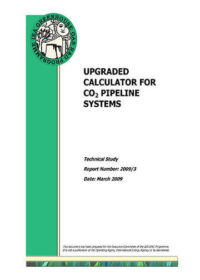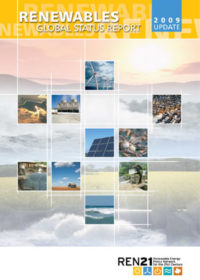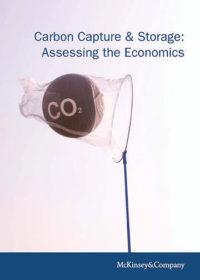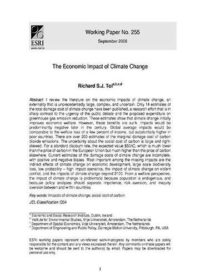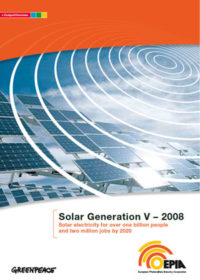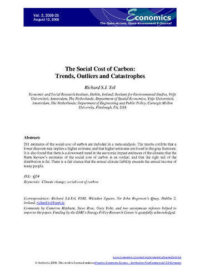Resources
Publications
Our publications, reports and research library hosts over 500 specialist reports and research papers on all topics associated with CCS.
View our Publication Library Disclaimer.
Filter by
The UK low carbon transition plan: national strategy for climate and energy
15th July 2009
Topic(s): Carbon capture use and storage (CCUS), Economics, Nuclear energy, Policy law and regulation, Renewables
This White Paper sets out the United Kingdom's low carbon transition plan from 2009 to 2020. This plan aims to deliver emission cuts of 18% on 2008 levels by 2020 (and over a one third reduction on 1990 levels).
Disclaimer
The content within the Global CCS Institute Publications, Reports and Research Library is provided for information purposes only. We make every effort and take reasonable care to keep the content of this section up-to-date and error-free. However, we make no claim as to its accuracy, currency or reliability.
Content and material featured within this section of our website includes reports and research published by third parties. The content and material may include opinions and recommendations of third parties that do not reflect those held by the Global CCS Institute.
Carbon valuation in UK policy appraisal: a revised approach
1st July 2009
Topic(s): Carbon markets, Economics, Social cost
Disclaimer
The content within the Global CCS Institute Publications, Reports and Research Library is provided for information purposes only. We make every effort and take reasonable care to keep the content of this section up-to-date and error-free. However, we make no claim as to its accuracy, currency or reliability.
Content and material featured within this section of our website includes reports and research published by third parties. The content and material may include opinions and recommendations of third parties that do not reflect those held by the Global CCS Institute.
The UK renewable energy strategy
1st July 2009
Topic(s): Domestic policy, Economics, Energy security, Policy law and regulation, Renewables
This strategy document explains how the UK Government will radically increase its use of renewable electricity, heat and transport to meet its legally-binding target to ensure 15% of its energy comes from renewable sources by 2020. The document describes how the United Kingdom will tackle climate change, reducing emissions of CO2 by over 750 million tonnes between 2009 and 2030. It will also promote the security of the UK’s energy supply, reducing overall fossil fuel demand by around 10% and gas imports by 20–30% against what they would have been in 2020. And it outlines opportunities for the UK economy with the potential to create up to half a million more jobs in the UK renewable energy sector resulting from around £100 billion of new investment. In parallel with energy saving, nuclear and carbon capture and storage, this is a key element of the nation’s overall transition plan for setting the UK on the path to achieve a low-carbon, sustainable future that helps address dangerous climate change.
Disclaimer
The content within the Global CCS Institute Publications, Reports and Research Library is provided for information purposes only. We make every effort and take reasonable care to keep the content of this section up-to-date and error-free. However, we make no claim as to its accuracy, currency or reliability.
Content and material featured within this section of our website includes reports and research published by third parties. The content and material may include opinions and recommendations of third parties that do not reflect those held by the Global CCS Institute.
Database and model of coal-fired power plants in the United States for examination of the costs of retrofitting with CO2 capture technology
1st April 2009
Topic(s): Carbon capture use and storage (CCUS), CO2 capture, Economics
Disclaimer
The content within the Global CCS Institute Publications, Reports and Research Library is provided for information purposes only. We make every effort and take reasonable care to keep the content of this section up-to-date and error-free. However, we make no claim as to its accuracy, currency or reliability.
Content and material featured within this section of our website includes reports and research published by third parties. The content and material may include opinions and recommendations of third parties that do not reflect those held by the Global CCS Institute.
Upgraded calculator for CO2 pipeline systems
27th March 2009
Topic(s): Carbon capture use and storage (CCUS), CO2 hubs, CO2 transport, Economics
The IEA Greenhouse gas R&D program has two Excel based computer programs developed which estimate the cost of pipelines carrying CO2. The first is a model built by Woodhill Engineering which includes routines for CO2 trunk pipeline as well as for other fluids and also injection wells and capture plant. The second model was recently developed by GASTEC at CRE Ltd and AMEC. This model calculates the costs of lower pressure CO2 collection networks and is calibrated for UK costs. The purpose of the work is to upgrade both of these models and to integrate them into one.
In summary, the aims of the project are:
- to increase the technical veracity of the trunk pipeline model, and
- to improve the user interface amenability of the network model,
Thereby make them more complementary and better aligned to ensure seamless integration.
Disclaimer
The content within the Global CCS Institute Publications, Reports and Research Library is provided for information purposes only. We make every effort and take reasonable care to keep the content of this section up-to-date and error-free. However, we make no claim as to its accuracy, currency or reliability.
Content and material featured within this section of our website includes reports and research published by third parties. The content and material may include opinions and recommendations of third parties that do not reflect those held by the Global CCS Institute.
Renewables global status report 2009 update
1st January 2009
Topic(s): Domestic policy, Economics, Global Status Report, Policy law and regulation, Renewables
This ‘Update’ edition of the Renewables Global Status Report is the fourth in a series launched in 2005. It provides an integrated picture of the global renewable energy situation, while coming in the midst of an historic and global economic crisis.
Disclaimer
The content within the Global CCS Institute Publications, Reports and Research Library is provided for information purposes only. We make every effort and take reasonable care to keep the content of this section up-to-date and error-free. However, we make no claim as to its accuracy, currency or reliability.
Content and material featured within this section of our website includes reports and research published by third parties. The content and material may include opinions and recommendations of third parties that do not reflect those held by the Global CCS Institute.
A discussion paper on a mechanism for sectoral emission reduction action: the case of China’s electricity sector
1st December 2008
Topic(s): Domestic policy, Economics, Renewables
The authors of this paper discuss mitigation and financing potentials of China’s electricity sector. It is a very large emitting sector, and there are many technologies available for improving emissions performance. They believe there are significant potential benefits both for sustainable development in developing countries and for the global atmosphere. However, they emphasise that theirs is a proposal for a voluntary mechanism, therefore countries must be convinced that it is in their best interests in order for it to proceed.
Disclaimer
The content within the Global CCS Institute Publications, Reports and Research Library is provided for information purposes only. We make every effort and take reasonable care to keep the content of this section up-to-date and error-free. However, we make no claim as to its accuracy, currency or reliability.
Content and material featured within this section of our website includes reports and research published by third parties. The content and material may include opinions and recommendations of third parties that do not reflect those held by the Global CCS Institute.
Carbon capture & storage: Assessing the economics
22nd September 2008
Topic(s): Carbon capture use and storage (CCUS), Economics
CCS is in a relatively early phase of development, with several key questions remaining, including its costs, timing, and relative attractiveness versus other low carbon opportunities. Furthermore a survey in April 2007 by MIT showed low public awareness of CCS in the US. Other interviews have shown that some confusion around the true economics of CCS exists, exacerbated by the wide range of cost numbers quoted and the limited information on how they are derived. For these reasons, this report aims to create a brief, objective, fact-based, and generally accessible overview of CCS, focusing on the economics and key issues, to help stakeholders understand and assess the technology. It will look ahead as far as 2030. The report has built as much as possible on existing knowledge. It has been based on technologies and measures that are currently relatively well known and understood and likely to be commercially available within the time period covered in this report.
Disclaimer
The content within the Global CCS Institute Publications, Reports and Research Library is provided for information purposes only. We make every effort and take reasonable care to keep the content of this section up-to-date and error-free. However, we make no claim as to its accuracy, currency or reliability.
Content and material featured within this section of our website includes reports and research published by third parties. The content and material may include opinions and recommendations of third parties that do not reflect those held by the Global CCS Institute.
This paper reviews the literature on the economic impacts of climate change, an externality that is unprecedentedly large, complex, and uncertain. Only 14 estimates of the total damage cost of climate change have been published, a research effort that is in sharp contrast to the urgency of the public debate and the proposed expenditure on greenhouse gas emission reduction. These estimates show that climate change initially improves economic welfare. However, these benefits are sunk. Impacts would be predominantly negative later in the century. Global average impacts would be comparable to the welfare loss of a few percent of income, but substantially higher in poor countries. There are over 200 estimates of the marginal damage cost of carbon dioxide emissions. The uncertainty about the social cost of carbon is large and right-skewed. For a standard discount rate, the expected value $50/tC, which is much lower than the price of carbon in the European Union but much higher than the price of carbon elsewhere. Current estimates of the damage costs of climate change are incomplete, with positive and negative biases. Most important among the missing impacts are the indirect effects of climate change on economic development, large scale biodiversity loss, low probability – high impact scenarios, the impact of climate change on violent conflict, and the impacts of climate change beyond 2100. From a welfare perspective, the impact of climate change is problematic because population is endogenous, and because policy analyses should separate impatience, risk aversion, and inequity aversion between and within countries.
Disclaimer
The content within the Global CCS Institute Publications, Reports and Research Library is provided for information purposes only. We make every effort and take reasonable care to keep the content of this section up-to-date and error-free. However, we make no claim as to its accuracy, currency or reliability.
Content and material featured within this section of our website includes reports and research published by third parties. The content and material may include opinions and recommendations of third parties that do not reflect those held by the Global CCS Institute.
Solar generation V – 2008: solar electricity for over one billion people and two million jobs by 2020
1st September 2008
Topic(s): Domestic policy, Economics, Solar energy
This report aims to compile a detailed quantitative knowledge base, coupled with clearly defined and realistic assumptions from which extrapolations could be made on the likely development of the solar electricity market up to 2030 and beyond.
This EPIA/Greenpeace report looks forward to what solar power could achieve - given the right market conditions and an anticipated fall in costs - over the first three decades of the twenty-first century. As well as projections for installed capacity and energy output, it makes assessments of the level of investment required, the number of jobs which would be created, and the crucial effect which an increased input from solar electricity will have on greenhouse gas emissions.
Disclaimer
The content within the Global CCS Institute Publications, Reports and Research Library is provided for information purposes only. We make every effort and take reasonable care to keep the content of this section up-to-date and error-free. However, we make no claim as to its accuracy, currency or reliability.
Content and material featured within this section of our website includes reports and research published by third parties. The content and material may include opinions and recommendations of third parties that do not reflect those held by the Global CCS Institute.
The social cost of carbon: trends, outliers and catastrophes
12th August 2008
Topic(s): Economics, Social cost
Disclaimer
The content within the Global CCS Institute Publications, Reports and Research Library is provided for information purposes only. We make every effort and take reasonable care to keep the content of this section up-to-date and error-free. However, we make no claim as to its accuracy, currency or reliability.
Content and material featured within this section of our website includes reports and research published by third parties. The content and material may include opinions and recommendations of third parties that do not reflect those held by the Global CCS Institute.
The economics of geological CO2 storage and leakage
4th April 2008
Topic(s): CO2 storage, Economics, Engineering and project delivery
The economics of CO2 capture and storage in relation to the possibility of significant leakage of CO2 from geological reservoirs once this greenhouse gas has been stored artificially underground will be among the main determinants of whether CCS can significantly contribute to a deep cut in global CO2 emissions. This paper presents an analysis of the economic and climatic implications of the large-scale use of CCS for reaching a stringent climate change control target, when geological CO2 leakage is accounted for. The natural scientific uncertainties regarding the rates of possible leakage of CO2 from geological reservoirs are likely to remain large for a long time to come. We present a qualitative description, a concise analytical inspection, as well as a more detailed integrated assessment model, proffering insight into the economics of geological CO2 storage and leakage. Our model represents three main CO2 emission reduction options: energy savings, a carbon to non-carbon energy transition and the use of CCS. We find CCS to remain a valuable option even with CO2 leakage of a few %/yr, well above the maximum seepage rates that we think are likely from a geo-scientific point of view.
Disclaimer
The content within the Global CCS Institute Publications, Reports and Research Library is provided for information purposes only. We make every effort and take reasonable care to keep the content of this section up-to-date and error-free. However, we make no claim as to its accuracy, currency or reliability.
Content and material featured within this section of our website includes reports and research published by third parties. The content and material may include opinions and recommendations of third parties that do not reflect those held by the Global CCS Institute.
